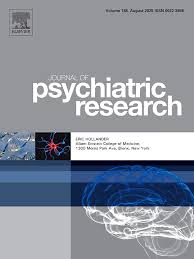Dr. Dixon is a clinical psychologist who specializes in anxiety disorders, misophonia, PTSD, and OC-related disorders. She teaches undergraduate and graduate courses, supervises graduate students, and is the director of the Health and Anxiety Research and Treatment (HART) Lab.
Research Interests
Broadly speaking, Dr. Dixon’s research interests include: misophonia, anxiety disorders, OCD, PTSD, transdiagnostic processes (e.g., emotion dysregulation, anxiety sensitivity), relevant comorbidities (e.g., anxiety disorders and health conditions or substance use), and the evaluation of brief interventions (e.g., exposure). Her research incorporates diverse methodological approaches to systematically identify and evaluate cognitive, behavioral, emotional, and psychophysiological processes that contribute to distress and impairment in those suffering from anxiety disorders, misophonia, and related conditions. A primary goal of this work is to identify modifiable factors that can be targeted in psychological treatments to improve wellbeing.
Dr. Dixon will be reviewing applications to the Clinical Ph.D. Program this year.
Biography
Dr. Dixon completed her B.A. in Psychology at the University of Arkansas and earned her PhD in Clinical Psychology at the University of Wyoming in 2014. Her predoctoral psychology internship/residency was at the University of Mississippi Medical Center & G.V. (Sonny) Montgomery VA Medical Center Consortium in Jackson, MS. Dr. Dixon continued at the University of Mississippi Medical Center for a two-year postdoctoral fellowship where she specialized in childhood and adult anxiety and conducted studies to examine anxiety vulnerability factors in relevant health populations, including perinatal women and dermatology patients. In 2016, Dr. Dixon joined the University of Mississippi’s Psychology Department in Oxford, MS as an assistant professor and was promoted to associate professor in 2022.
Dr. Dixon is currently a licensed clinical psychologist in Mississippi who specializes in behavioral treatments for a range of psychological disorders, including misophonia, anxiety disorders, obsessive-compulsive disorder, posttraumatic stress disorder, mood disorders, and externalizing disorders. A key aspect of her position as an associate professor is her role in the Clinical Psychology Doctoral Training program wherein she trains graduate students in research, clinical assessment and treatment, and professional development. She also teaches undergraduate and graduate courses and directs the Health and Anxiety/Research and Treatment (HART) Laboratory. In 2020, Dr. Dixon’s grant “Advancing the Characterization and Assessment of Misophonia through Laboratory and Population-based Research” was funded by the Misophonia Research Fund. Her research endeavors have also been acknowledged through several awards, including the UM’s Dr. Mike L. Edmonds New Scholar Award (2021), UMMC’s W. Stewart Argras, M.D. Grand Rounds Speakership Award (2015), and ADAA’s Career Development Travel Award (2014). Dr. Dixon currently serves as an associate editor of the Journal of Anxiety Disorders.
Publications
Dixon, L.J., *Schadegg, M.J., *Clark, H.L., *Sevier, C. J., & *Witcraft, S. M. (2024). Prevalence, phenomenology, and impact of misophonia in a nationally representative sample of U.S. adults. Journal of Psychopathology and Clinical, 133, 403 - 412. DOI: 10.1037/abn0000904
Dixon, L. J., *Schadegg, M. J., *Clark, H. M., & *Perry, M. M. (2023). Evaluating public awareness of misophonia in U.S. adults: A population-based study. Current Psychology, 42, 32417-32426. DOI: 10.1007/s12144-022-04180-x
Dixon, L. J., *Witcraft, S. M., McCowan, N. K., & Brodell, R. T. (2018). Stress and skin disorder quality of life: The moderating role of anxiety sensitivity social concerns. British Journal of Dermatology, 178, 951-957. DOI: 10.1111/bjd.16513
Dixon, L. J., Lee, A. A., Viana, A. G., McCowan, N. K., Brodell, R. T., & Tull, M. T. (2016). Anxiety sensitivity in dermatological patients. Psychosomatics, 57, 498-504. DOI: 10.1016/j.psym.2016.03.001
Dixon, L. J., Kemp, J. J., Farrell, N. R., Blakey, S. M., & Deacon, B. J. (2015). Interoceptive exposure exercises for social anxiety. Journal of Anxiety Disorders, 33, 25-34. DOI: 10.1016/j.janxdis.2015.04.006
Dixon, L. J., Sy, J. T., Kemp, J. J., & Deacon, B. J. (2013). Does anxiety sensitivity cause panic symptoms? An experimental investigation. Journal of Experimental Psychopathology, 4, 208-223. DOI: 10.5127/jep.027512
Courses Taught
- PSY 201 Introduction to Psychology (Honors)
- PSY 311 Psychopathology: Integrative Approaches
- PSY 721 DBT Seminar
- PSY 723 Clinical Practicum (Graduate)
- PSY 741 Ethics & Prof Standards of Clinical Psychology
Education
Ph.D. Psychology, University of Wyoming (2014)
Recognitions
- Dr. Mike L. Edmonds New Scholar Award, College of Liberal Arts, 2021
- Graduate Mentor Award, UM Department of Psychology, 2020
- W. Stewart Argras, M.D. Grand Rounds Speakership Award, University of Mississippi Medical Center, 2015
- Career Development Travel Award, ADAA, 2014

